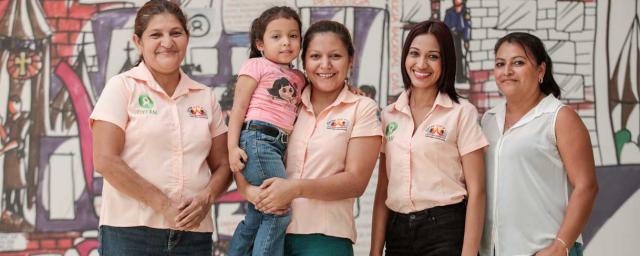
El Salvador is the smallest country in Central America, with an area of 21,000 km2 and a population of 5.7 million. It’s amongst the countries in Latin America and the Caribbean with the highest levels of inequality.
The main challenges the country currently faces are migration, violence and social insecurity, gender inequality as well as the proneness to climate change impacts and the impacts of natural and anthropic phenomena.
In 1992, the country signed the Peace Treaty, which brought an end to 12 years of Civil War and opened up great opportunities for the democratic process. However, it took another 17 years for the country to see a political change within the government.
For nearly two decades, the dominant economic model promoted a rapid liberalization of markets and a reduction in social spending, with little investment in basic services such as education, health and drinking water. Public investment in the agricultural sector was minimal, converting the country into a net importer of grains and other basic products.
This economic model generated very low growth rates which were insufficient to promote the development process, with rates of inequality remaining high, and the country seeing an exodus of its most valuable resource: its people. Approximately 25% of the Salvadoran population lives in countries that offer better living conditions, primarily the United States.
With the 2009 elections, the leftist party came to power for the first time in over two decades. The new government focused on promoting the Universal Social Protection System as a strategy of social development, while seeking coverage of basic social services to the impoverished population, such as education, health, violence prevention, and basic pension. The need to halt environmental degradation and curb proneness to disasters caused by natural phenomena has also been recognized.
Oxfam in El Salvador
Based on our experience and capabilities to make a difference, we focus on these four objectives in El Salvador:
Food security and sovereignty
We help ensure food security and sovereignty through political advocacy and the promotion of economic and productive opportunities, with a special focus on rural women.
Gender justice
We promote the recognition of women’s rights as a fundamental condition for the development of El Salvador, with a special focus on rural women.
Human Right to Water
We contribute so that in El Salvador, laws and policies that recognize the human right to water, especially those oriented to women living in rural area, are promoted, enacted and enforced.
Prevention, Preparation and Humanitarian Response
We promote the right to protection and safety for communities and the most vulnerable, particularly women, against the risk of anthropic and natural disasters.